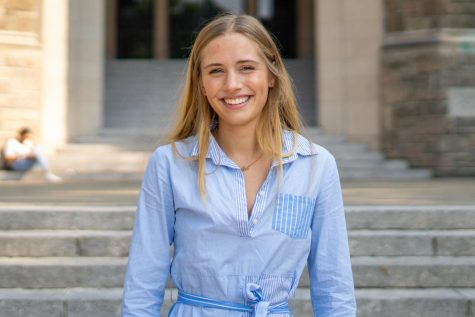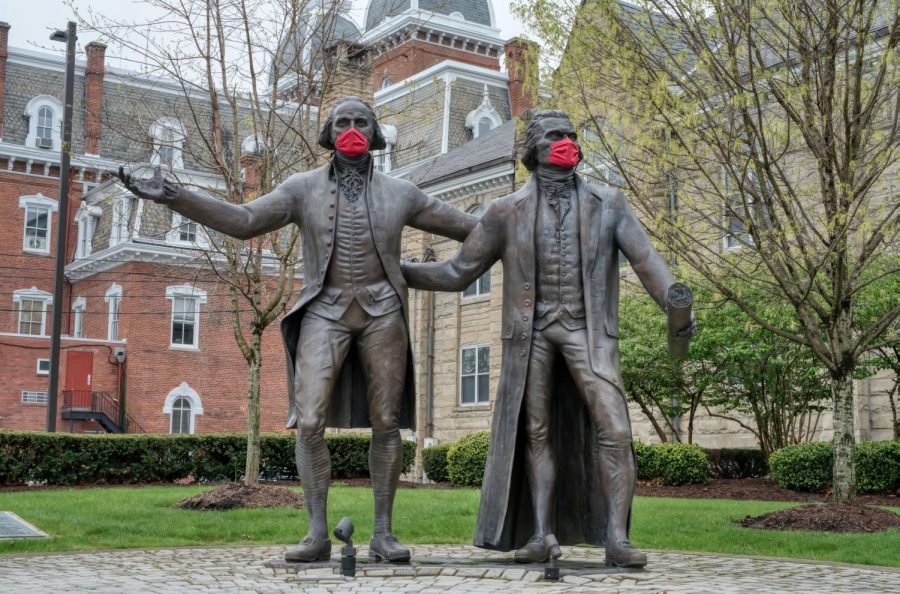Fordham’s COVID-19 Policies Have a Promising Start
Fordham University is joining the struggle of countless other U.S. colleges to open amid a pandemic. While this seems like a difficult feat, Fordham University seems to have one of the more promising plans with regular free testing, the use of VitalCheck and a strict mask policy. However, the plan’s effectiveness depends on student and faculty participation.
Fordham is in a much better position than many other universities when it comes to controlling the spread. The campus gates allow the university to control who can enter, making it difficult for individuals outside the Fordham community to bring COVID-19 to campus. Additionally, the CDC highly recommends regular testing to all universities, and Fordham is doing a very good job of this. Everyone was required to be tested before returning to campus for the fall semester, which likely hindered the virus’ initial introduction to our campus. Fordham providing free tests to its students and staff upon arrival is also incredibly commendable. This will encourage people to get tested more frequently, as the price of tests can be high and many free testing sites have a long wait time for results. As long as Fordham offers the option for students to be tested frequently, we have a chance to stay ahead of any major outbreaks.
With regard to the classroom, Fordham has allowed professors to make a decision about whether they would like to teach online or in person. While it is excellent that Fordham is respecting their faculty’s decisions, the same luxury has not been afforded to many of the workers at Fordham. Fordham’s food workers, custodial staff and maintenance workers are now left with minimal job security (as we could be sent home at any time) and have no choice but to come to work, even if there is an outbreak.
This issue leads to the topic of on-campus dining. All of the on-campus dining locations are now “grab and go.” It is unclear whether the decision to make all eating utensils disposable is to prevent the transmission of COVID-19 or to reduce the number of necessary employees to assist with cleaning. According to UCDavis Health, touching contaminated surfaces is not the main way the virus is transmitted. While it is important to take all possible precautions, even if they only prevent a few infections, the environmental consequences of disposable utensils and the loss of dishwashing jobs far outweigh the risk of infection. However, the design of the dining locations appears to be very effective. Tents and outdoor tables are set up all over campus so students have comfortable and low-risk places to eat, but open-air tents may become a problem as the weather gets colder.
Fordham also made the decision to ban all interdorm visitation. While this policy seems incredibly effective for containing the virus, there is some major pushback, especially from upperclassmen who already have established friendships. It is easy to sympathize with Fordham’s Residential Life staff, since coordinating requests is an incredibly difficult job. Housing seems to be the most difficult component of university life to manage during the pandemic. It will not be surprising — providing the infection rate on campus stays low — if this policy is modified for upperclassmen housing in response to the discontent.
While policies on campus are fairly easy to create and enforce, off-campus student living presents a much bigger challenge. Many major outbreaks that have occurred at other colleges have been linked to off-campus parties, particularly ones hosted by fraternities and sororities. Despite not having Greek life, Fordham still must take into account the fact that infections will most likely occur off campus. Before the return to campus, students were required to complete an online module that gave information about the virus itself along with Fordham’s particular policies. In a component about off-campus activities, they emphasized that people should not have gatherings of more than 10 people, a reasonable and effective request considering most outbreaks from other schools occurred at large parties.
However, Fordham is threatening to enforce this policy through the use of the NYPD. The policy states that the police will be able to confiscate Fordham ID cards and give them to Fordham Public Safety, where they could later be picked up by the student. It is shocking that Fordham is working so closely with the NYPD, especially in the wake of the Black Lives Matter movement, for which Fordham has consistently voiced support. I reached out to Father McShane’s office to express my concern about the wording of the policy and point out contradictions to the previous email about educating for racial justice. I received an email back that stated: “None of this states, nor implies, that Fordham is using the NYPD to enforce COVID-19 precautions, much less threatening students with police action (it is the same policy language the University has used for decades).” Perhaps it is time to change the language in an attempt to be a more inclusive community.
Overall, Fordham’s COVID-19 policies have the potential to be effective; however, there are a few key issues regarding concern for minimum-wage employees, environmental risks and reliance on the NYPD. Fordham’s Mission Statement emphasizes community, justice, respect for the environment and moral reflection. That is what draws so many people to our wonderful community. As we move forward in the year, I hope that some of the COVID-19 policies morph to fit these values in a more comprehensive way.
Ava Erickson, FCRH ’23, is a journalism major Denver, Colo.

Ava Erickson is a senior from Denver. Her passion for writing and language led her to double major in journalism and Spanish studies. She began working...








































































































































































































